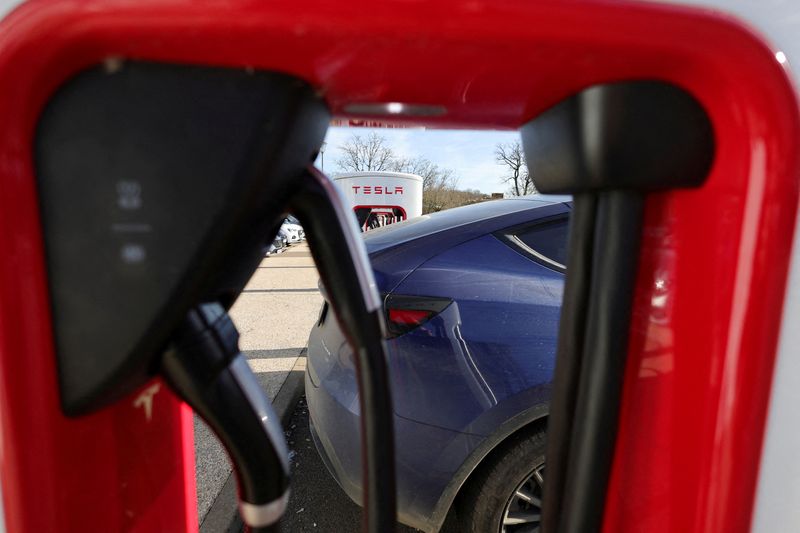(Reuters) - Three Tesla (NASDAQ:TSLA) owners in California on Wednesday sued the automaker in a proposed class action that accuses the company of falsely advertising the estimated driving ranges of its electric vehicles.
The lawsuit in the U.S. District Court for the Northern District of California cites a Reuters article published last week which reported Tesla had created a "Diversion Team" in Nevada to cancel as many range-related appointments as possible after becoming inundated with owner complaints.
Reuters also reported that about a decade ago Tesla had decided to write algorithms for its in-dash range meter that would show drivers "rosy" projections for the distance the car could travel on a full battery, according to a source.
The directive to present the optimistic range estimates came from Tesla CEO Elon Musk, this person said. Reuters could not determine whether Tesla still uses algorithms that boost range estimates.
Neither Tesla nor Musk responded to detailed questions from Reuters for last week's article. They did not immediately respond to requests for comment about the lawsuit on Wednesday.
The lawsuit alleges Tesla breached vehicle warranties and engaged in fraud and unfair competition.
"Put simply, Tesla has a duty to deliver a product that performs as advertised," Adam A. Edwards, an attorney at Milberg Coleman Bryson Phillips Grossman, the firm representing Tesla owners in the lawsuit, said in a statement. The lawsuit's three plaintiffs cite occasions when their Teslas didn't achieve close to their advertised ranges and said they had complained to the company without success.
James Porter, a Petaluma, California-based Model Y owner, said in the lawsuit that on one trip he "lost approximately 182 miles of range—despite only driving 92 miles."
The lawsuit states: "Had Tesla honestly advertised its electric vehicle ranges, consumers either would not have purchased Tesla model vehicles, or else would have paid substantially less for them." The complaint seeks class-action status to represent "all persons in California who purchased a new Tesla Model 3, Model S, Model Y, and Model X vehicle." It seeks unspecified damages.

Tesla also faces lawsuits and regulatory scrutiny over its Autopilot and "Full Self-Driving" technology and its claims about the safety of those systems.
A California Tesla owner also filed a proposed consumer class action in April after Reuters reported that Tesla employees had shared on an internal messaging system sensitive images and videos captured by cars' cameras. The lawsuit accuses Tesla of violating the privacy of its customers. Tesla has denied those allegations.